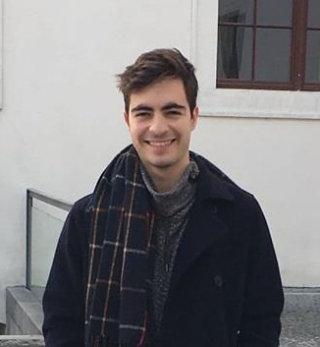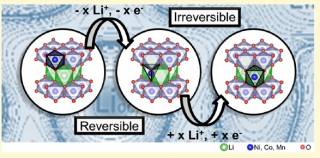
Background
Originally from Paris and after living in Valencia for nine years, Alex arrived in London in 2013 and studied at UCL where he got a BEng in Chemical Engineering and graduated with Distinction with an MSc in Materials for Energy and Environment. During this time, Alex spent six months in the materials group at CERN in Geneva, Switzerland to work on the imaging and characterisation of materials of the supercoils of the ITER nuclear fusion project, currently building in the south of France. For his Master’s thesis, he started working on the imaging of Lithium-ion batteries at the Electrochemical Innovation Lab, particularly on the study of the internal structure and impurities of 18650 cells. He now carries on with his PhD there since 2018.
Research Summary
Alex focuses on the investigation of degradation mechanisms occurring at the surface and within the macro and microstructure of Ni-Rich NMC cathode materials. Part of the Degradation fast start project of the Faraday Institution, this work is embedded in the need for better and safer Lithium-ion batteries for the electrification of the automotive industry.
He is primarily focusing on the degradation occurring at the bulk of the material and studying aspects like the lattice c-parameter, the irreversible replacement of potential Li ion sites by NMC particles*, Lithium ion mobility of the cell or particle cracking. In order to observe and characterise these parameters, the use of X-Ray Computed Tomography (at the micro and nano scale), XRD and XAFS for crystallographic and structural information, in lab or synchrotron environment, will be used.
Another aspect considered is the triggering mechanism of the degradation like the change of c-rate and voltage cut off mostly, as well as temperature. This is why another part of his project is to consider different charge/discharge protocols varying the c-rate and V, and see how the degradation is therefore affected. Qualitative assessment are done, but a quantitative approach using image analysis will be tackled, by primarily spatially resolving the data.

* Kleiner, K., et al., 2018. Origin of high capacity and poor cycling stability of Li-rich layered oxides: a long-duration in situ synchrotron powder diffraction study. Chemistry of Materials, 30(11), pp.3656-3667.
Conferences attended
- London Energy Materials and Devices Hub 2019, UCL, UK, Organising committee
- Materials for Clean Energy Conference 2019, National Physics Laboratory, UK, poster presentation
- STFC Early Career Researchers Conference 2019, Abingdon, UK, poster presentation
 Close
Close

